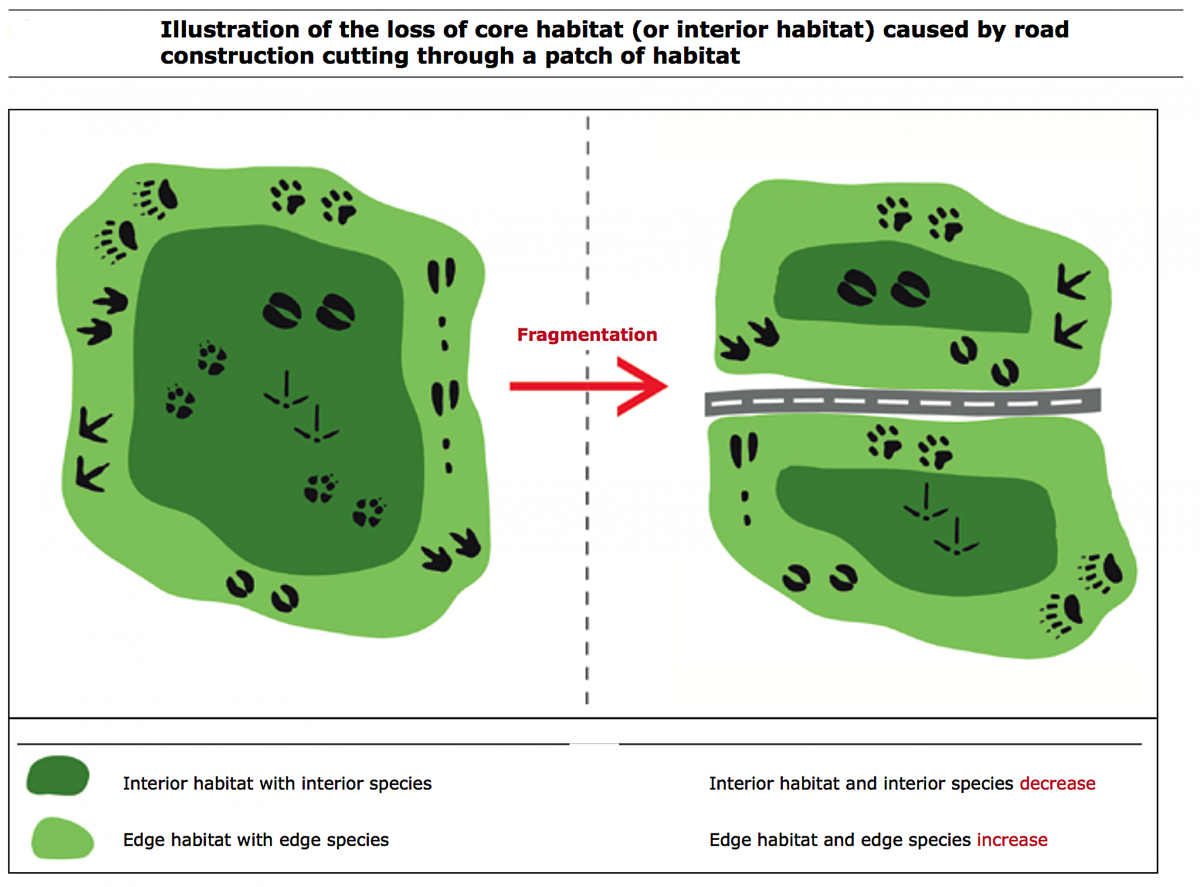Diverse responses of species to landscape fragmentation in a simple Biology Diagrams The lack of space and resources for both predator and prey can lead to imbalanced food chains, further threatening biodiversity. Furthermore, species that rely on specific habitat types, such as certain birds or amphibians, may be particularly sensitive to fragmentation, as they may require large, uninterrupted areas of habitat for breeding

We here explore how the number of habitat patches, i.e. the number of fragments, and an increase of habitat isolation affect the species diversity patterns of complex food webs (α-, β-, γ-diversities). We specifically test whether there is a trophic dependency in the effect of these two factors on species diversity. The effect of habitat changes on food chain length: habitat deterioration (A and D), habitat loss (B and E), and habitat fragmentation (C and F). A-C illustrate the three types of habitat changes.

The effect of habitat changes on food chain length: habitat ... Biology Diagrams
Thus, habitat fragmentation can reduce food chain length by disrupting trophic interactions, thereby leading to cascading secondary extinctions in food webs The effect of habitat fragmentation on species occupancies is dependent on the degree of habitat loss. At extremely low levels of habitat loss, fragmentation has minimal effect on the The negative effects of patch fragmentation on food chain dynamics are largely determined by patch loss, Fahrig, L. Effect of habitat fragmentation on the extinction threshold: a synthesis. Ecol.

In general, the strongest effects on chain length were detected through changes in abundance rather than species richness although abundance was less affected by habitat fragmentation. We evaluated for the first time the effects of human-driven habitat fragmentation on the length of trophic chains in highly diverse plant-herbivore-parasitoid

Countering the effects of habitat loss, fragmentation, and degradation ... Biology Diagrams
1. Introduction. Understanding the impact of habitat fragmentation (habitat loss, number of fragments and isolation) on biodiversity is crucial for ecology and conservation biology [1-3].A general observation and prediction is that large-bodied predators at high trophic levels which depend on sufficient food supplied by lower trophic levels are most sensitive to fragmentation, and thus 1. Introduction. Ecological communities across the world are under threat from ongoing habitat destruction, a leading driver of biodiversity loss [].Resulting from land use change, pollution, over-exploitation and climate change, habitat destruction can be characterized into two components: patch loss and patch fragmentation [].The first, patch loss, is simply a decrease in the total habitable The effect of habitat changes on food chain length: habitat deterioration (A and D), habitat loss (B and E), and habitat fragmentation (C and F). A-C illustrate the three types of habitat changes. In A and B, green and gray points represent the remaining and destroyed habitats, respectively.
